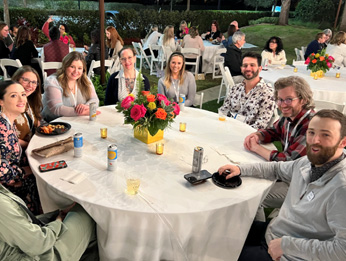
Fourth-year externships are an integral part of any Doctor of Audiology (Au.D.) program at an accredited university. But that doesn’t mean that externship programs only favor students. In this post, I’ll explain how the externship system is a win-win for both fourth-year externs and the clinics that employ them.
Side note: normally, externships for 2021 would be filled by now, but it’s not been a normal year. If you are considering an externship for the fall, now is the time to take action and start planning.
Benefits for Students
Most doctoral candidates in audiology are required by their institutions to complete a certain number of hours of supervised clinical practicum at an off-campus clinical site during a 12-month externship. This real-world, hands-on experience is crucial for audiology students to gain the necessary skills and knowledge to work with a variety of populations and disorders in different settings. It also helps them develop their ability to evaluate and integrate scientific research into clinical practice.
In a nationwide survey, fourth-year audiology students ranked “scope of practice at the facility” as the most important factor in determining a desirable externship placement, followed by “type of facility” and “ability to work with other professionals.”
I recently spoke to three four-year externs—two of whom work at VA hospitals and one at the prestigious Cleveland Clinic. Each student shared with me that their experiences helped them decide what they want to specialize in. Some of those decisions include treating adults versus pediatric patients, working in a more clinical (hospital, ENT) setting versus a dispensing environment (private practice), and determining what technologies/hearing aid manufacturers they’re most comfortable using.
Students with an entrepreneurial spirit or interest in sales and marketing can choose to extern at private practice to learn firsthand what it takes to run a hearing healthcare business. This experience will either encourage their desire to open their own practice after graduation (and put them in a better position to succeed when they do) or confirm they’d be happier working for a hospital, university, or ENT.
So, how does hiring an extern stand to benefit a practice owner or director of ENT clinic or hospital audiology department?
Benefits for Clinics
According to the U.S. Bureau of Labor Statistics (BLS), the national employment rate of audiologists is expected to grow much faster than average through the year 2028.
With this large disparity between supply and demand for audiologists, practice owners should do everything in their power to build a pipeline of potential providers.
Employing a fourth-year extern allows a clinic to “test drive” a potential full-time permanent employee. That student can also bring in a fresh perspective from their schooling, especially when it comes to advances in technology. There’s a good chance that if the extern has a good experience, they will strongly consider staying at that clinic once he/she graduates.
It’s important to note that each of the 70+ accredited Doctorate of Audiology programs in the country has its own established guidelines for clinics interested in becoming an externship site. This includes everything from the required number of hours of clinical experience students need to complete to the specific type of clinical work students need to be exposed to. Some universities require that supervising audiologists be ASHA certified (i.e. have a Certificate of Clinical Competence in Audiology from the American Speech-Language-Hearing Association). Externship sites are not required to provide monetary compensation, however, most do and offer it in the form of a stipend or a regular paycheck.
Conclusion
The fourth-year externship has always been and will continue to be, a crucial pathway in the field of audiology. Students gain valuable practical experience after three years of vigorous study while clinics can closely evaluate someone who could be a key contributor to their future growth and success.
It’s the ultimate win-win in a field that has a very bright and expanding future.









